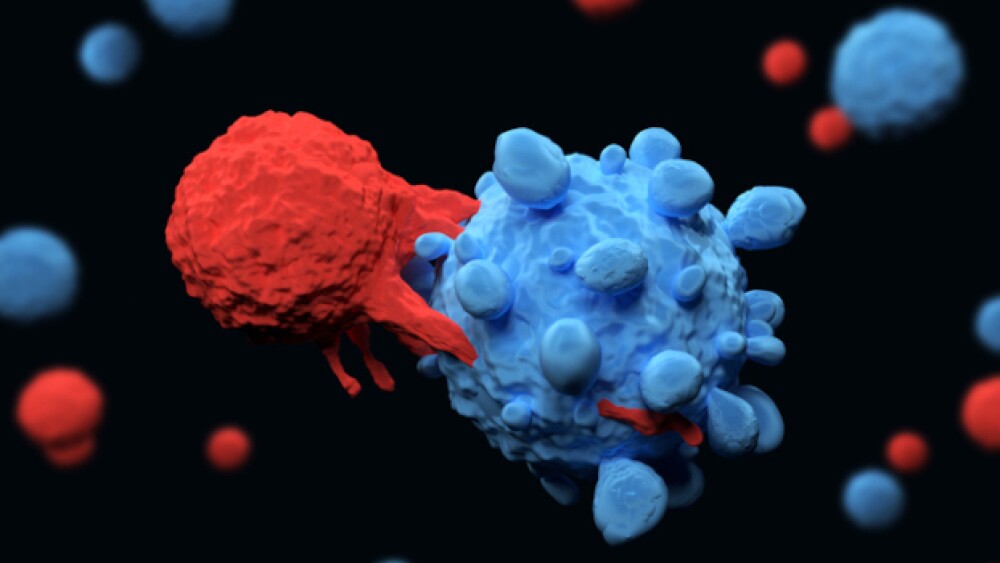Allogene Therapeutics and Arbor Biotechnologies will use their allogeneic CAR T and next-generation gene-editing platforms to develop novel off-the-shelf CAR-T therapies for autoimmune diseases.
Pictured: CAR-T cell attacking a cancer cell/iStock, Meletios Verras
Allogene Therapeutics and Arbor Biotechnologies on Tuesday announced that they entered into a non-exclusive global gene editing licensing deal to develop allogeneic CAR-T therapies for autoimmune diseases.
The collaboration agreement “provides us access to Arbor’s proprietary gene-editing technology and know-how,” Allogene CMO Zachary Roberts said in a statement, adding that the partnership will help the company develop “the most effective and broadly accessible CAR T approach for the treatment of autoimmune disease.”
The licensing deal will bring together Allogene’s CAR T expertise with Arbor’s proprietary CRISPR gene-editing technology. Using AI techniques with high-throughput screening, Arbor engineers novel genomic editors that leverage the CRISPR system to deliver therapeutically relevant levels of editing efficiency, according to the biotech’s website.
Arbor’s approach allows it to use various technology platforms—from gene knockouts to large insertions and precision editing—giving it a “robust set of tools” to most effectively target specific disease.
Allogene and Arbor did not disclose the specific financial terms of the deal or the division of responsibilities, nor did they reveal what autoimmune indication they would target.
Arbor’s next-generation gene-editing technology has also attracted Vertex Pharmaceuticals, which in 2018 paid $30 million upfront to target cystic fibrosis. In January 2023, Vertex expanded the partnership, allowing for up to three disease targets.
For its part, Allogene will leverage its AlloCAR T platform, which makes use of T cells from healthy donors engineered to express CARs that recognize and destroy the target cells.
By combining these technologies, the partners aim to reduce or completely remove chemotherapy conditioning typically required for the treatment of autoimmune diseases. Allogene expects to launch a Phase I study for its first AlloCAR T investigational product in early 2025.
For Allogene, the Arbor pact comes as it refines its pipeline priorities. In January 2024, the biotech announced that it would focus its allogeneic CAR-T development on four main programs: large B-cell lymphoma, chronic lymphocytic lymphoma, renal cell carcinoma and autoimmune diseases.
Its autoimmune disease program is led by ALLO-329, a CD19 product that targets B-cells and CD70-positive activated T cells, both of which are known to play a role in autoimmune diseases.
As part of its new pipeline strategy and resource reallocation, Allogene eliminated 22% of its headcount.
Tristan Manalac is an independent science writer based in Metro Manila, Philippines. Reach out to him on LinkedIn or email him at tristan@tristanmanalac.com or tristan.manalac@biospace.com.






